




Social Sciences subjects include Sociology, Criminology and Social Policy. These subjects provide students with an academic understanding of society, the social world, crime and criminal justice. If you are naturally inquisitive, fascinated by society and have a strong desire to help people, either on a personal or a wider scale, a degree in a social sciences subject could be the perfect choice for you.
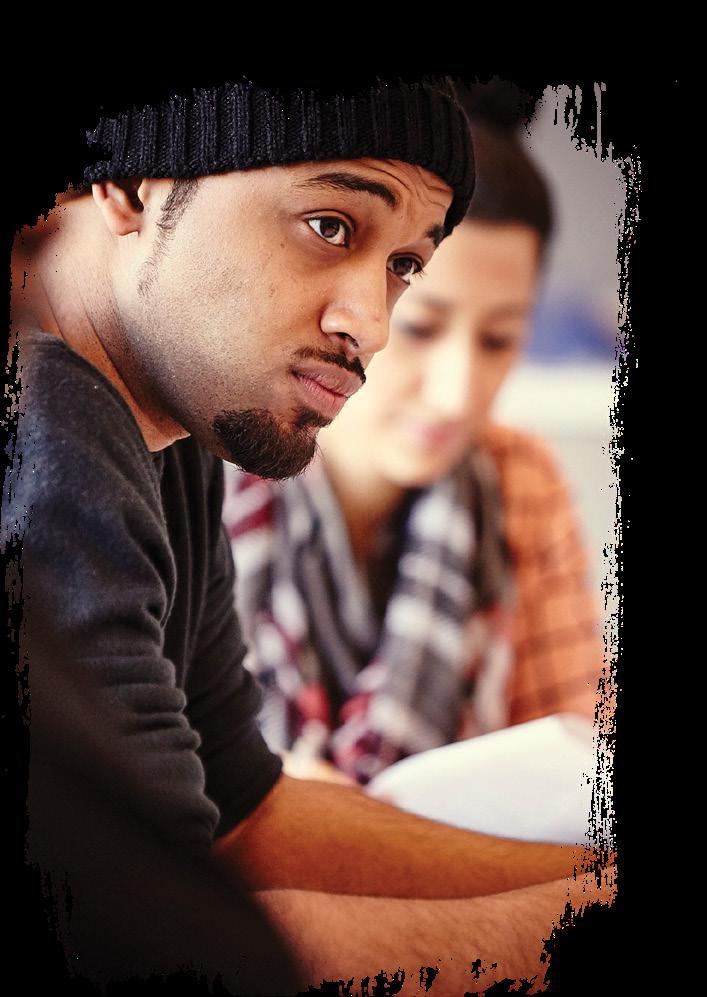
These degrees are taught via lectures, tutorials and seminars and are assessed largely by essays, exams, presentations and reports. Social sciences courses tend to be more academic and research-focused rather than practical, however, all our courses do offer the opportunity to undertake a placement. You will also benefit from opportunities to engage with professionals working in the field of your choice, whether that’s through your placement or site visits, field trips, guest speaker slots and workshops.
What can I do with a social sciences related degree?
A degree in a social sciences subject can broaden your career opportunities. The beauty of a social sciences degree is it can take you in so many directions and you can use your time on the course to decide which aspect of it you are most passionate about. Example career pathways of Social Sciences graduates include Youth Worker, Charity Officer, HR Professional, Housing Manager, Government Advisor Worker, Social Researcher, Probation Officer, Community Development Worker, Teacher, Pastoral Care Worker, Policy Officer. Many people also use a degree in a Social Sciences subject to start their journey into professions such as Social Work, Teaching, Policing and Counselling.
Find out about some of the career pathways our recent graduates have taken.
ARTIANA ARTIANA
BSc Social Policy graduate
Current Role: HR Advisor for Adidas
I graduated with a First Class Honours and continued at Salford with a master’s degree in Human Resources Management and Development. This course has helped me become more open to the world – from talking to and learning from others, to really building my confidence that I can do anything once I apply myself and do the work. I now work as a HR Advisor for Adidas.
FAYE FAYE
BSc Criminology with Counselling graduate
Current Role: Independent Victim Advocate for Victim Support
After I finished university, I went on to work for Victim Support. I am now an IVA - this is an Independent Victim Advocate. I offer initial support and advice services to those who report incidents to the police, on all ranges and aspects of crimes. I am starting on an all-rounded basis of crime type role but the job does give the opportunity to develop or transfer into particular areas if wanted, such as sexual assault, domestic abuse, etc.
BSc Social Policy graduate
Current Role: Board Trustee and Research Advisor
I have been involved in a variety of roles since graduating from my degree in Social Policy. I have co-founded a youth organisation, undertaking the role of stategic lead. I am a board trustee for the Poverty Truth Network and a co-chair for GMCA’s Food Security Action Network aimed at ending holiday hunger.


BSc Social Policy graduate

Current Role: Senior Parliamentary Researcher and Communications Officer
After graduation, I spent some time in hospitality and then moved into politics in 2018 where I’ve worked for 5 members of parliament in four years. I am currently a Senior Parliamentary Researcher and Communications Officer to an MP. I am also a radio producer at LBC which is an opportunity that would not have happened without my career in politics.
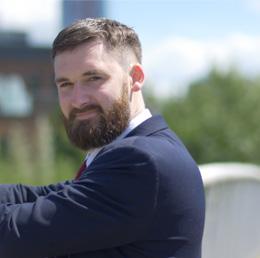
9am
Catch up on emails and look through bookings and referrals. These can be anything from sexual health education sessions, LGBTQ+ relationship sessions, to pop up sexual health clinics and 1-1 sessions for vulnerable people.
10.30am
I am responsible for the social media, so I spend time making funny, informative and relatable videos on TikTok and Instagram that are aimed at getting people thinking and talking about important issues like STI’s, condom use and safe sex.

12pm
I attend an education session for the Prince’s Trust in Macclesfield. We have open and honest discussions today about consent, condom sizes and red flags in relationships. It’s good to have humour in these sessions and it creates a comfortable environment. After the session, we have a Q&A where they can ask questions in the group or privately. After this I set up a testing station and give out testing kits. This involves me taking urine samples and swaps and dropping them off in the sexual health clinic. Everyone who tests gets a free sperm key ring, which always sems to be a great incentive to test!
5pm 3pm 7pm
I have a pop up clinic at the YMCA in Crewe. I set up a table in the common room with my condom demonstrator which attracts attention and I strike up conversations about sex and safe sex from there. People can sign up for a free condom card which means they are entitled to free condoms from us for life, which always proves popular. I bring new games each week to keep it fun and informative to get to topics such as how you cannot consent to sex when you are drunk and how risky behaviour can lead to STI’s.
Have some tea! I also spend some time organising the condom cupboard and ordering more supplies like vaginal swabs.
This week I’m sitting in on the trans positive support group which is a social group at our office for transgender people. I did my dissertation on transgender experiences and the impact on trans lives in the North West so it’s really meaningful to be a part of the group. There are trans people of all ages, backgrounds and positions in their transition and it allows them to make friends with people in similar positions to them and provides a place where they can be supported and heard.
Sociology is concerned with understanding social life and our place within it. On this course, you will study human connections and relationships, and how these connections, as well as social structures, such as social class, race and gender, are linked to the way we behave. You will tackle difficult questions around issues such as poverty, sexism, austerity, immigration, privacy and social unrest, and gain insights into our cultural and everyday lives.
Our world today faces multiple crises, each of which impact on society in ways that require astute analysis. From the cost-of-living crisis in the UK to the global environmental crisis and international conflict, people around the world are dealing with rapid changes to the communities they live in, with many becoming unaffordable or even uninhabitable. At the same time, new digital technologies mean people around the world are more informed and connected than ever before and cultural changes mean many more people are expressing identities that were at one time suppressed or even criminalised. As a Sociology student, you will explore these historical changes and contemporary events to understand what kind of impact they can have on society, how societies deal with them and how they can be the catalysts for major societal change.
A degree in sociology provides a strong foundation for a range of occupations from policing to prison and probation work to journalism and social administration. Our graduates enter a wide range of careers including commerce, management and administration. Others undertake postgraduate vocational training in teaching, law or social work or go on to further academic study.
To hear more from our sociology students, please visit: salford.ac.uk/explore-our-sociology-degree
COURSE INFORMATION AND REQUIREMENTS
LOCATION
DURATION
START DATE
TYPICAL ENTRY
UCAS Code
UCAS Tariff
BTEC National Diploma
GCSE
Frederick Road Campus
Three years full-time, six years part-time
September
L300
112 points
DMM
GCSE English language/ literature and mathematics at grade C/grade 4 or above. Level 2 equivalencies will also be accepted.
ASSESSMENT DELIVERY
Essays, exams, presentations, reports and (optional)
dissertation
Lectures, tutorials, seminars, presentations and site visits.
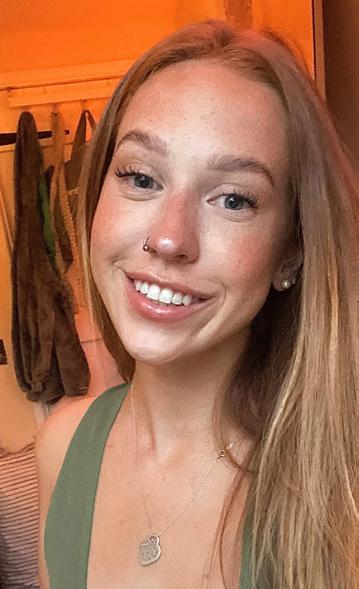
BSc Sociology Graduate
Current Role: Pupil and Family Support Service Lead
“In the final year of my Sociology degree, I undertook a placement at Manchester Youth Zone, based in Rochdale. I wanted to explore the nature of youths today, regarding education and circumstance.
I loved the placement as it allowed me to be involved with ages 7-11, 11-14’s and be involved in the inclusion session which is for people with additional needs. I found that this allowed me to experience how the different ages interact, their social connections, and the issues that different age ranges face.
I was able to be involved in a huge variety of activities at Youth Zone. For example, every session alone was filled with cooking, sports, games, arts, music, dance, gym, and boxing, and that’s not even mentioning half of the activities on offer.
I was also able to be involved with groups, such as the allgirls group. The purpose of the all-girls group was to do fun activities, whilst opening up conversations about anything ranging from bullying to social media, to menstruation.
The placement was an amazing experience and influenced me so much that I have just started a job at a school with children with additional needs as a Pupil and Family Support Service Lead, as I found working with youths so fulfilling and enjoyable.”
Criminology is concerned with what behaviour is defined as criminal and who has the power to define what constitutes crime. Criminology is commonly misconceived and confused with other subject areas, for example, forensic science. Although criminology does, of course, explore crime, the focus is on the causes of crime and deviant behaviour, how this affects society and how the criminal justice system responds to this, rather than on crime scene analysis, forensics and criminal investigation.
Criminology is a research-led degree and develops students into analytical and critical thinkers. It explores crime as a social construct, asking important questions such as: What are the individual and societal causes of crime and deviant behaviour? Who in society is more likely to commit a crime? Does offender rehabilitation work? Who is likely to become a victim of crime? Why are some dangerous behaviours criminal and others aren’t? And how does media attention and reporting impact crime and deviance?
Criminologists are also interested in how to prevent crime, the purpose and effectiveness of punishment and how the criminal justice system can better respond to crime when it does take place.
Graduates from our Criminology programmes have gone on to become victim support workers, prison officers, police officers, crime analysts, private security managers, compliance officers, youth offending workers, and to occupy a variety of roles in programmes focusing on drug use, domestic violence or other social problems.
LOCATION
DURATION
START DATE
TYPICAL ENTRY
UCAS Tariff
BTEC National Diploma
GCSE
Frederick Road Campus
Three years full-time, six years part-time
September
112 points
DMM
GCSE English Language/ Literature and Mathematics at grade C/grade 4 or above. Level 2 equivalencies will also be accepted.
UCAS CODE ASSESSMENT DELIVERY
M900
Essays, exams, presentations, reports and (optional) dissertation
Lectures, tutorials, seminars, presentations and site visits.
JOE
JOE
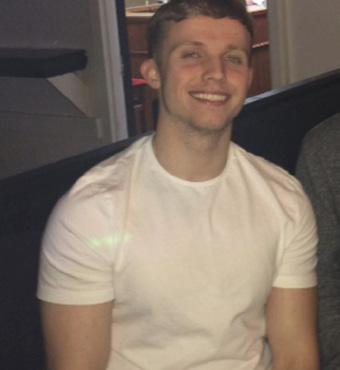
BSc Criminology - Top Tip
“The open day I attended was very engaging which helped to give you an understanding of what the course was going to be like. Students who were already studying were available so we could ask them any questions we had.”
BSc Criminology and Sociology, BSc Criminology, BSc Criminology and Counselling and BSc Sociology students have the amazing opportunity of choosing a module called ‘Inside-Out’. This module involves contact hours that are delivered inside HMP Forest Bank prison with ‘inside’ students, who are serving prisoners enrolled as University of Salford students for the duration of the module. Jessica completed the module and told us her thoughts:
I thought it would be interesting to go inside a prison and speak to people who are serving sentences. I wanted to form my own opinions about prisons from experiencing it myself and hearing the experiences of others.
We would head to Forest Bank Prison early so we had time to go through all the security, we made our way through the gates, across the yard and into the main corridor of the prison, and through to the education wing. In a classroom we sorted the chairs into a circle and waited for the ‘inside students’ to come in. Once everyone was there, we began tasks and discussions.
I didn’t know what to expect, there’s not much you can compare it to, so I tried to not expect anything. I was very nervous at first, but many ‘inside students’ made effort to make me and others comfortable. They were a nice, normal bunch of guys.
We had different discussions and tasks each week, people had such a variety of opinions, but no one ever got heated over disagreements and everybody would always let people speak up, but they also weren’t afraid to disagree. Something interesting was always being discussed. The best moments were getting to know the inside guys: a really friendly group, with so many experiences and funny stories.
The assessments were challenging as I have not had to write reflectively before, but they were not completely overwhelming, and we all received plenty of support. The presentation that was done
“Inside-out is delivered in a local prison to both students from within the prison and students studying on our undergraduate programmes in criminology and sociology. Everyone is equal, with an equal voice and an equal stake in the learning process. Everyone does the same reading, writing and grappling with complex issues together”
DR KELLY LOCKWOOD MODULE LEADER AND LECTURER IN CRIMINOLOGYin groups was especially enjoyable and done in a more fun way to present; like a gameshow. Everyone had their own unique strengths so some students would be more comfortable with presenting. At the end of our tasks, we were all proud of what we had managed to do individually. The best was when people got their results back, many inside students were so proud of their results, one said he couldn’t wait to ring his mum and tell her which made my day.
The lecturers were fantastic. Antony and Kelly are very approachable, down to earth people who connected really well to both sets of students inside and outside, and they were patient, supportive and explained everything well. They kept everyone on track well without it feeling rushed, even though everyone agreed we all wished we could have had more time together.
Yes, highly, it is an amazing experience.
To hear more from our Criminology students, please visit: salford.ac.uk/explore-criminology-degrees-salford

Criminology is concerned with what behaviour is defined as criminal and who has the power to define what constitutes crime. Criminology is commonly misconceived and confused with other subject areas like forensic science. Although criminology does, of course, explore crime, the focus is on the causes of crime and deviant behaviour, how this affects society and how the criminal justice system responds to this, rather than on crime scene analysis, forensics and criminal investigation.
LOCATION
DURATION
START DATE
TYPICAL ENTRY
UCAS Tariff
BTEC National Diploma
GCSE
Frederick Road Campus
Three years full-time, six years part-time
September
112 points
DMM
GCSE English Language/ Literature and Mathematics at grade C/grade 4 or above.
A degree in Criminology and Counselling provides a strong foundation for a wide range of occupations from victim and witness support, prison, probation work, and community rehabilitation companies.

Our graduates have gone on to become victim support workers, prison officers, police officers, crime analysts, private security managers, youth offending workers, and to occupy a variety of roles in programmes focusing on drug use, domestic violence or other problems.
Some of our graduates also go on to complete a conversion qualification for a career in law while others do a postgraduate certificate in education and go into teaching.
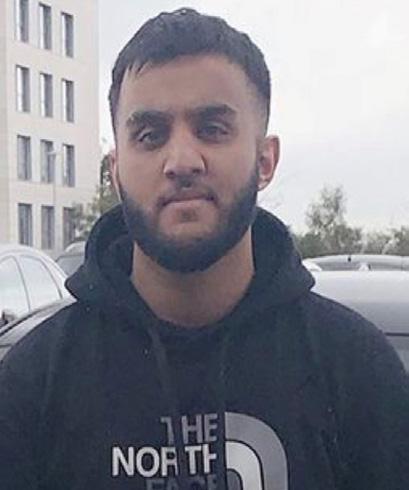
“Your personal tutor is always there to help regardless of the issue, which is something I have been very appreciative of”
BSc Criminology with Counselling Student – Top Tip
Criminology is concerned with what behaviour is defined as crime and who has the power to define what constitutes crime. Criminology is commonly misconceived and confused with other subject areas like forensic science. Although criminology does of course explore crime, the focus is on the causes of crime and deviant behaviour, how this affects society and how the criminal justice system responds to this, rather than on crime scene analysis, forensics and criminal investigation. Criminologists are also interested in how to prevent crime, the purpose and effectiveness of punishment and how the criminal justice system can better respond to crime when it does take place.
Our Criminology with Security programme is one of the first of its kind, combining security, intelligence and terrorism studies with criminological theory. This course responds to recent global events which highlight the importance of security in preventing, controlling and responding to all forms of crime, whether originating in local, national or transnational contexts. You will explore the role of security services, such as MI5 and MI6, the challenges and threats societies face today and the approaches that different states and other institutions have taken to achieve, enhance and maintain security.
Graduates from our Criminology programmes have gone on to become victim support workers, prison officers, police officers, crime analysts, private security managers, compliance officers, youth offending workers, and to occupy a variety of roles in programmes focusing on drug use, domestic violence or other social problems. By combining Criminology with Security you will be well-placed for similar positions to these but you will also develop both the subject expertise and skills that can be used for practice in the growing security sector, including the UK’s National Crime Agency, the military, intelligence services, private security companies, as well as criminal justice and third-sector bodies and international organisations such as the Organisation for Security and Co-operation in Europe.
LOCATION DURATION
START DATE
TYPICAL ENTRY
UCAS Tariff
GCE A-level: BTEC National Diplomaa
GCSE
Frederick Road Campus
Three years full-time, six years part-time
September 112 points
DMM
UCAS CODE
GCSE English Language/ Literature and Mathematics at grade C/grade 4 or above. Level 2 equivalencies will also be accepted.
MN06
Essays, exams, presentations, reports and (optional)
dissertation
Lectures, tutorials, seminars, presentations and site visits.
BSc Sociology and Criminology Student
“This year, during the summer semester (4 months) I have taken part in an Erasmus + student exchange in Germany. I attended the Johannes Gutenberg Universität in Mainz. I had first heard about the opportunity to go abroad from one of my lecturers. This student exchange has opened my mind to so many things and possibilities, and most importantly I have met so many amazing people. Being able to surround myself with people from all around the world who have the most incredible drive and ambitions has encouraged me to be a better student and a better person.
Experiencing a different way of teaching at another university is interesting. You can see how differently students are treated in another country and what is important in your field in a different society and culture.
I, myself, have come out of this experience much stronger and more confident, with a new passion and drive for life and for studying. I would strongly recommend going on a placement like this, since it changes you and opens you up for so many new opportunities, connections, cultures, and lifelong lessons.”
*BSc Sociology, BSc Criminology, BSc Criminology and Counselling, BSc Criminology and Security and BSc Criminology and Sociology all offer the opportunity to study abroad.
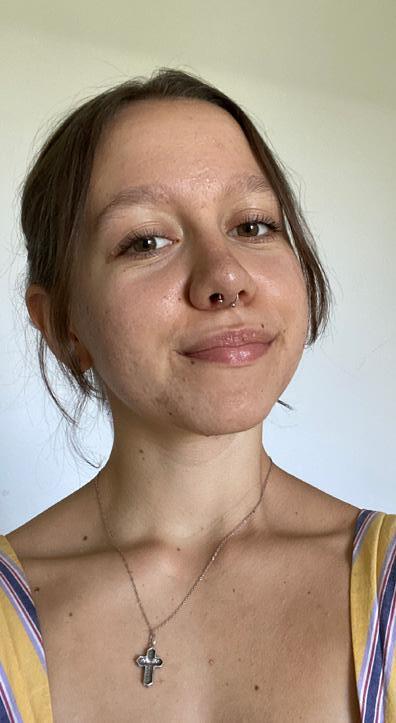
What is defined as crime? Who in society has the power to define this? What are the individual and societal causes of crime and deviant behaviour? Who in society is more likely to commit a crime? Can mass societal change influence criminal behaviour? How does media attention and reporting impact crime and deviance? How are social structures, such as social class, race and gender, related to the way we behave? And do they impact on the way we are treated by the criminal justice system? These are just some of the questions asked by Sociologists and Criminologists, and this joint degree is perfectly positioned to answer them.
This interesting and stimulating Criminology and Sociology degree will provide you with a sound understanding of the key conceptual and substantive issues involved in the study of society, crime and criminal justice. The degree will highlight the connections between personal troubles and public issues. You will learn how to apply critical thinking toward a range of global and local issues such as climate change, technological developments, poverty, unemployment, homelessness, racism, gender inequality, and power in society, and how these topics also relate to crime, criminalisation, and crime control.
Criminology and Sociology is a flexible degree, for the first year, everyone studies the same curriculum. In years two and three you will be able to select specific modules and curate your own pathway on a range of different Criminological and Sociological topics. The degree will ground you in sociological and criminological theories, as well as provide you with key social research skills, both of which provide key knowledge and skills that open opportunities for a range of employment opportunities and career options.
Graduates from our Criminology programmes have gone on to become victim support workers, prison officers, police officers, crime analysts, private security managers, compliance officers, youth offending workers, and to occupy a variety of roles in programmes focusing on drug use, domestic violence or other social problems.
LOCATION
DURATION

START DATE
TYPICAL ENTRY
UCAS Tariff
BTEC National Diplomaa
GCSE
Frederick Road Campus
Three years full-time, six years part-time
September
112 points
DMM
GCSE English Language/ Literature and Mathematics at grade C/grade 4 or above. Level 2 equivalencies will also be accepted..
UCAS CODE
ASSESSMENT
LM39
Essays, exams, presentations, reports and (optional)
dissertation
DELIVERY
Lectures, tutorials, seminars, presentations and site visits.
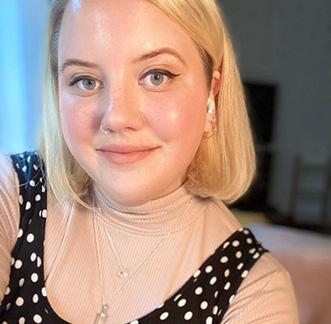
Well, I researched a lot of different universities and Criminology/ Sociology courses! Once I’d developed a short list of institutions that offered degrees which aligned to my own interests, I found that it was quite difficult to figure out which one was the right ‘fit’. I decided then to attend a lot of open days to be able to get a better feel for the different places and people. Coming to Salford, spending some time here, going to the taster sessions and talking to the staff was extremely helpful in terms of understanding not only what the course entails, but what kind of atmosphere they foster and value here. It was always important to me that the department felt quite close-knit and welcoming, I wanted to be part of a community and that was something I felt straight away when I came to the open day. I knew then that this was the place for me. It just felt right!
I can’t recommend Salford enough if you’re interested in studying Criminology. The department is very research active so you’re constantly learning new and exciting things, the modules are diverse and its home to such a supportive and engaging atmosphere. If you’re considering studying here, I’d really advise coming to an open day - have a chat about the course and the modules, get a feel for the place and bring as many questions as you have.
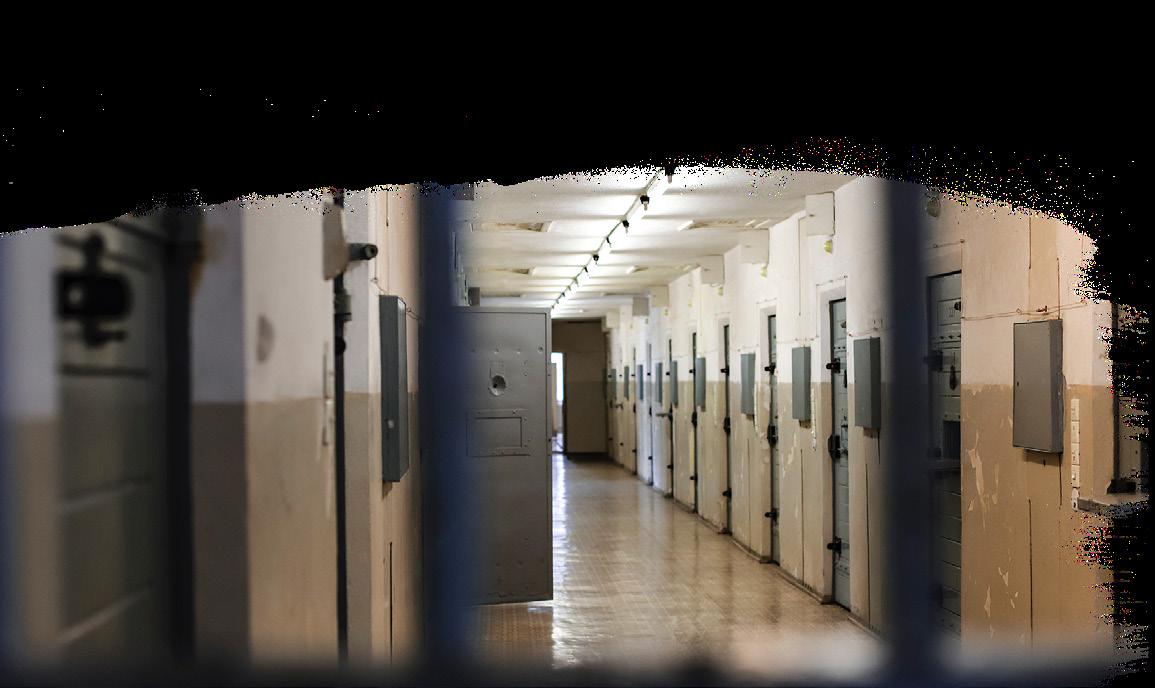
Our programme will enable you to understand the causes of social problems and how societies attempt to solve them through the design and implementation of policy and welfare.
Take today’s headlines - food banks, the ‘crisis’ in the NHS, unaffordable housing, problems with Universal Credit - we see these terms in the news, but what do they actually mean? Why are some members of society faced with these issues whilst others thrive? We explore how these inequalities come to exist and the influences of political and social factors on the development of social policies to maintain the wellbeing of citizens. On this course you will develop an awareness and understanding of key social issues and develop the skills and tools to develop effective policy in order to address them.
Our graduates use their Social Policy degree in different ways. Some enter careers which have a direct relationship to their degree and work within the public services or voluntary sector – for example in social care, housing and public health. Some use their degree as a ‘gateway’ into further training/ qualifications including a PGCE (teaching).

To hear from more of our Social Policy graduates, please visit: salford.ac.uk/explore-our-social-policy-degree
LOCATION
DURATION
START DATE
TYPICAL ENTRY
UCAS Tariff
BTEC National Diplomaa
GCSE
Frederick Road Campus
Three years full-time, six years part-time
September 96 points
MMM
GCSE English Language/ Literature and Mathematics at grade C/grade 4 or above.
UCAS CODE
ASSESSMENT
L400
Essays, exams, presentations, reports and (optional) dissertation
DELIVERY
Lectures, tutorials, seminars, presentations and site visits.
Megan Barnett attended a 2 week summer school with MP for Oldham, Debbie Abrahams.
Every year, Oldham’s MP, Debbie Abrahams, runs a two-week summer school for young people interested in politics and community issues. The tutors at Salford regularly post details of employment and volunteering opportunities and this is how I first became aware of the Summer School.
During the first week we took part in activities such as debates, ran mock election campaigns and met and spoke to experts in politics. We had virtual meetings with MPs such as David Lammy, Wes Streeting, and Nadia Whittome - and Tom Tugendhat who had just been eliminated from the Conservative leadership election race the previous day! It was very interesting hearing about their work at Westminster and to ask them questions about subjects we cover in our course.
For the second week of the Summer School, we went on work placements in organisations to gain practical civic experience of working for our community. My placement was with the Greater Manchester Combined Authority.

The team was so welcoming and put together a really interesting programme which gave me a great insight into the roles of the different organisations that make up the GMCA. I had the opportunity to visit Transport for Greater Manchester’s control room, where I learnt about transport and security issues and how their work plays into all the other organisations within the GMCA.
On a couple of the days, I shadowed Mayor, Andy Burnham, which was an amazing opportunity. I went with him for a tour of Broughton House, the UK’s first Veteran Care Village. In 2018, near the beginning of his mayoralty, the GMCA invested funding for the building’s renovation to improve the facilities for the current residents, and to ensure the support Broughton House provides continues for future generations. It was Andy’s first time seeing Broughton House since its renovation and he was amazed by its transformation. It was great to see first-hand the positive impact local investment provides when allocated in the community.
On a different day, I went with Andy to a conference where he was speaking on Universal Basic Income. At the conference I ran into my tutor, Dave Beck who was also a speaker there. It was through Dave’s discussions and lectures on social security that I was most aware of UBI and the potential benefits it could provide.
Attending the Summer School has helped me better understand the issues that I have been studying at Salford. It has put that work into context – particularly from a community point of view. It has given me a valuable insight into the way policy is created and implemented in practice. I was able to see the collaborative nature involved in policy, and how much work goes into it behind closed doors. In my final year I will be doing a volunteer placement which is with an organisation involved in social policy, that I made connections with at the summer school.
If you don’t meet our entry requirements for your preferred course, don’t worry – we have a foundation year that could be the perfect option for you.
The Foundation Year programme will help you develop an understanding of the key subjects in the social sciences so that you can continue to successfully study your degree.
This foundation year is part of a four-year pathway which will prepare you to study your chosen social sciences course. The key areas of study are effective communication and study skills, combined with fundamental subjects in the social sciences.
COURSE INFORMATION AND REQUIREMENTS
DURATION
START DATE
TYPICAL ENTRY
UCAS Tariff A-Level
Four years full-time September 80 points 80 points from a minimum of two A2 subjects
BTEC National Diploma
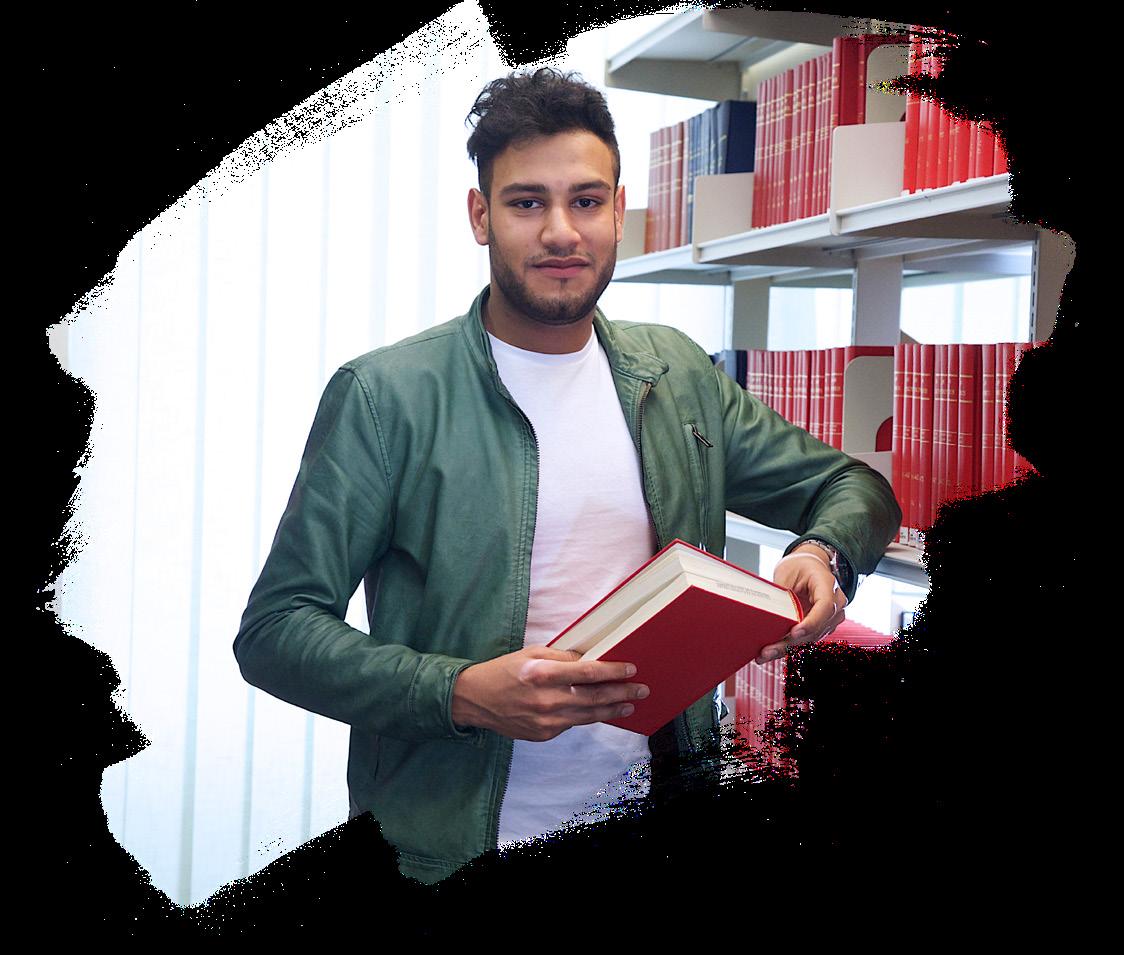
ASSESSMENT DELIVERY
MMP (BTEC Extended Diploma), MM (BTEC Diploma).
Presentations, essays, written and practical exams
Lectures, seminars, reflective practice, guided study, teamwork and oral presentations.
Our students and graduates often say that one of their favourite things about Salford is the “community feel” and we are very proud of our social sciences community at Salford. Our team is made up of professionals who have a broad range of specialisms and who are very active in their respective fields, from moral panics, ‘true crime’, prisons and youth crime, through to the social impact of technologies, policing, gender and social class - whatever you’re interested in, it’s likely there’s an expert for you to talk to!
We stay in touch with our graduates, who are advocates for our courses, and our teams have excellent connections with industry, ensuring that you have access to experts across all fields, whether that’s through placements, field trips or guest lectures.
In the latest Research Excellence Framework, which evaluates the university’s research output, our highest performing submission for ‘impact’ was Social Work and Social Policy with 75% of impact rated as outstanding and 100% rated as outstanding or very considerable.
salford.ac.uk/news/salford-rises-22-places-research-excellence-framework-league-table
Dr Dave Beck is Programme Leader for Foundation Year in Social Sciences, a Social Scientist and Social Policy lecturer with an interest in (food) poverty and the social security system. His research work has previously focused on the rise of food banks across Wales, addressing the ‘how’, and more specifically, ‘why’ people end-up using a food bank. Dave has an interest in understanding how neoliberalism influences the social security system, making people feel insecure.
Social Policy students were invited to attend and contribute to the conference: UBI Lab Manchester, also attended by Andy Burnham, current Mayor of Greater Manchester. The event was organised by Salford’s own Dr Dave Beck, whose main area of research is looking at a universal basic income. He co-chairs two groups who look at how this concept could solve issues in Greater Manchester such as food insecurity.
Dr Adam Aitken is a lecturer in Criminology at University of Salford. His areas of interest are security/securitisation of large events, private security and security governance, placemaking and rural resilience, environmental risks and harms, police use of technology, crime, space and place (including digital).
Dr Kelly Lockwood came to the University of Salford in 2015 as a Research Assistant before becoming a Criminology Lecturer in 2016. Kelly has research interests in women and the criminal justice system, with a focus on mothering and imprisonment. Since arriving at Salford Kelly has worked on a number of externally funded research projects in this area. Kelly has previously worked as a manager for a women’s centre working in partnership with criminal justice agencies to support women who had offended or were at risk of offending. Kelly is also the programme lead for the BSc Criminology with Counselling and BSc Criminology with Security programmes.
Dr Toni Wood is a lecturer in Criminology, Academic Researcher and Programme Lead for BSc Sociology, BSc Criminology and the Criminology and Sociology programmes at the University of Salford.
Her current research programmes include Menopause and the Prison, an exploration of the experiences of older women in the prison (staff and prisoners), with wider research in autism, ADHD in the CJS: health and wellbeing of prison staff.
Toni is coordinator of the Criminal Justice Hub at University of Salford, a collaborative network of Social Sciences. Toni is also one of the co-founders of the Autism and Criminal Justice Research hub at the university.
Dr Thomas Redshaw joined the University of Salford in 2018 as lecturer in Digital Society and is now the Admissions Tutor for the Criminology and Sociology programmes. His field of interest is the emerging field of digital sociology. Since arriving at Salford, Tom has co-organised two conferences that invited distinguished speakers to present their research on topics relating to the digital: ‘Reclaiming The Social in Digital Society’ (2019); and ‘Deviant Pleasure Markets & Digital Technologies’ (2020).
These people are all experts in their respective fields and can provide useful insights into different career pathways. Regular guest speakers include:

MATTHEW TORBITT
Senior Parliamentary Researcher and Communication Officer (Houses of Parliament).
TONY NEWMAN
An Independent Consultant, Project Manager & Trainer in social housing.
Professor Lisa Scullion is professor of Social Policy and CoDirector of the Sustainable Housing & Urban Studies Unit (SHUSU). Lisa joined the University of Salford in 2006 and since then has delivered over 60 externally funded research projects. Her work focuses on experiences of the social security benefits system and she engages directly with policy makers through her work. Lisa led the largest national UK study focusing on social security and employment support during COVID-19. Lisa is currently leading the UK’s first substantive research focusing on the experiences of military veterans within the benefits system.
CATHERINE CONNORS
Principal Officer Salford Council’s Welfare Right’s and Debt Advice Service.
PETE ATHERTON
CEO & founder of Community Led Initiatives, Working with ex-offenders.
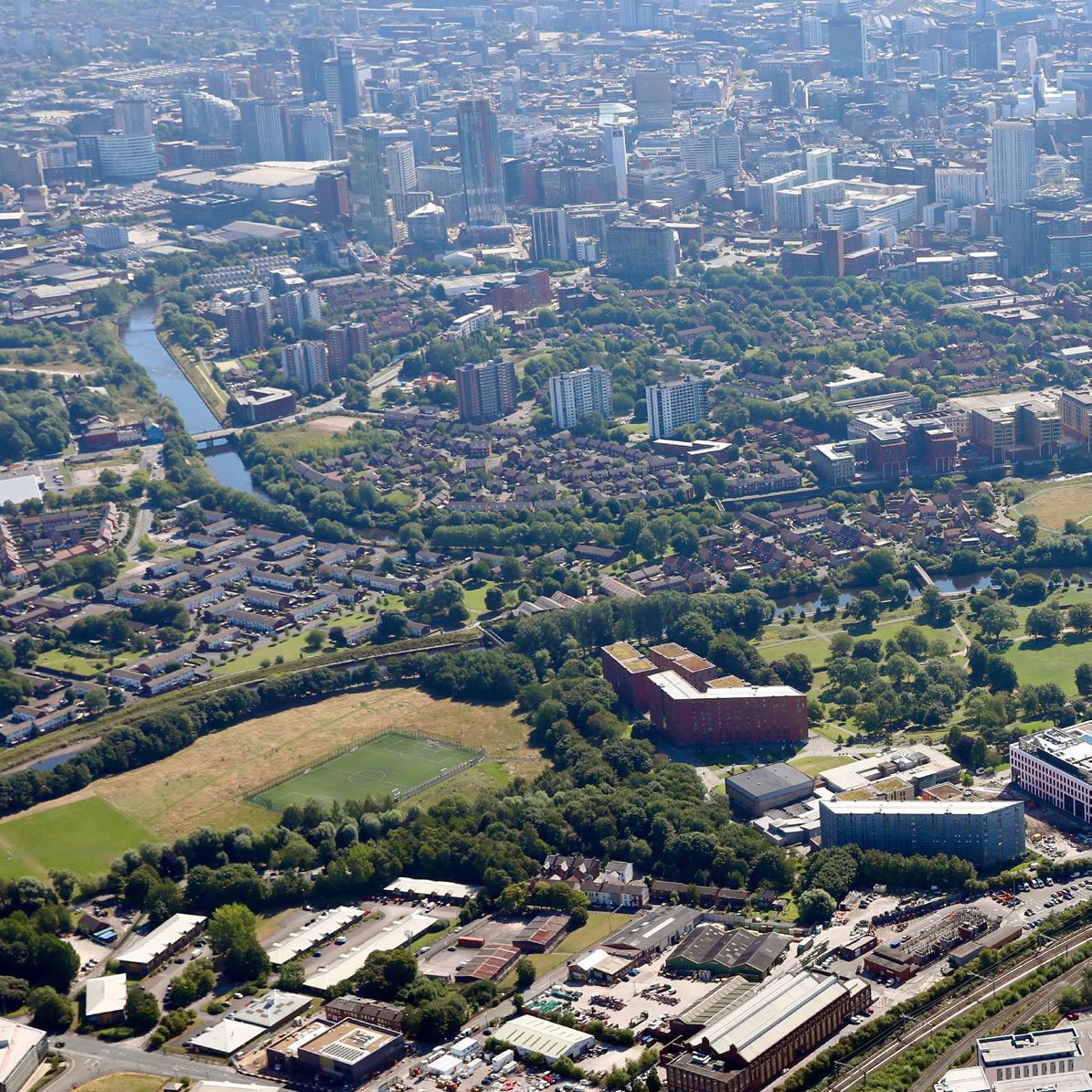
As pioneers of the Industrial Revolution, there’s always been an entrepreneurial spirit here in North-West England – we’ve got big ideas and we make them happen. Thousands of students from over 100 countries have already found that Salford is the place where they can gain skills and knowledge to unlock their career ambitions.
Salford students are part of a 100,000 collective making up one of Europe’s largest student populations. Famous for music, culture, sport, art and science, the cities of Manchester and Salford offer an unrivalled student experience where you can balance your academic studies with a wealth of world-class culture, exciting events and legendary nightlife. It’s no surprise Manchester has been voted the UK’s most liveable city for two years running, and just recently, voted the third best city in the world.
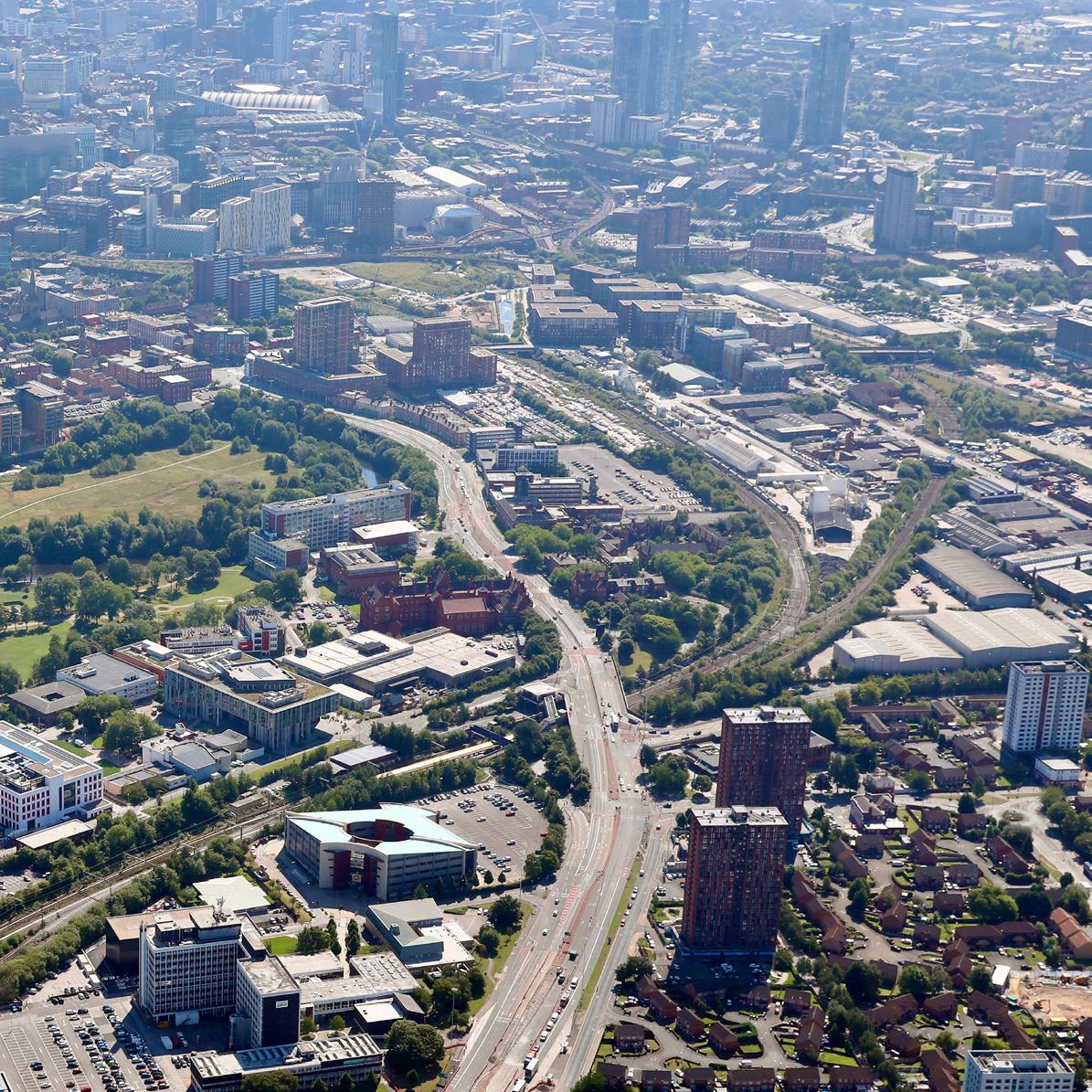 JOHN LESTER AND EDDIE COLMAN COURTS
JOHN LESTER AND EDDIE COLMAN COURTS
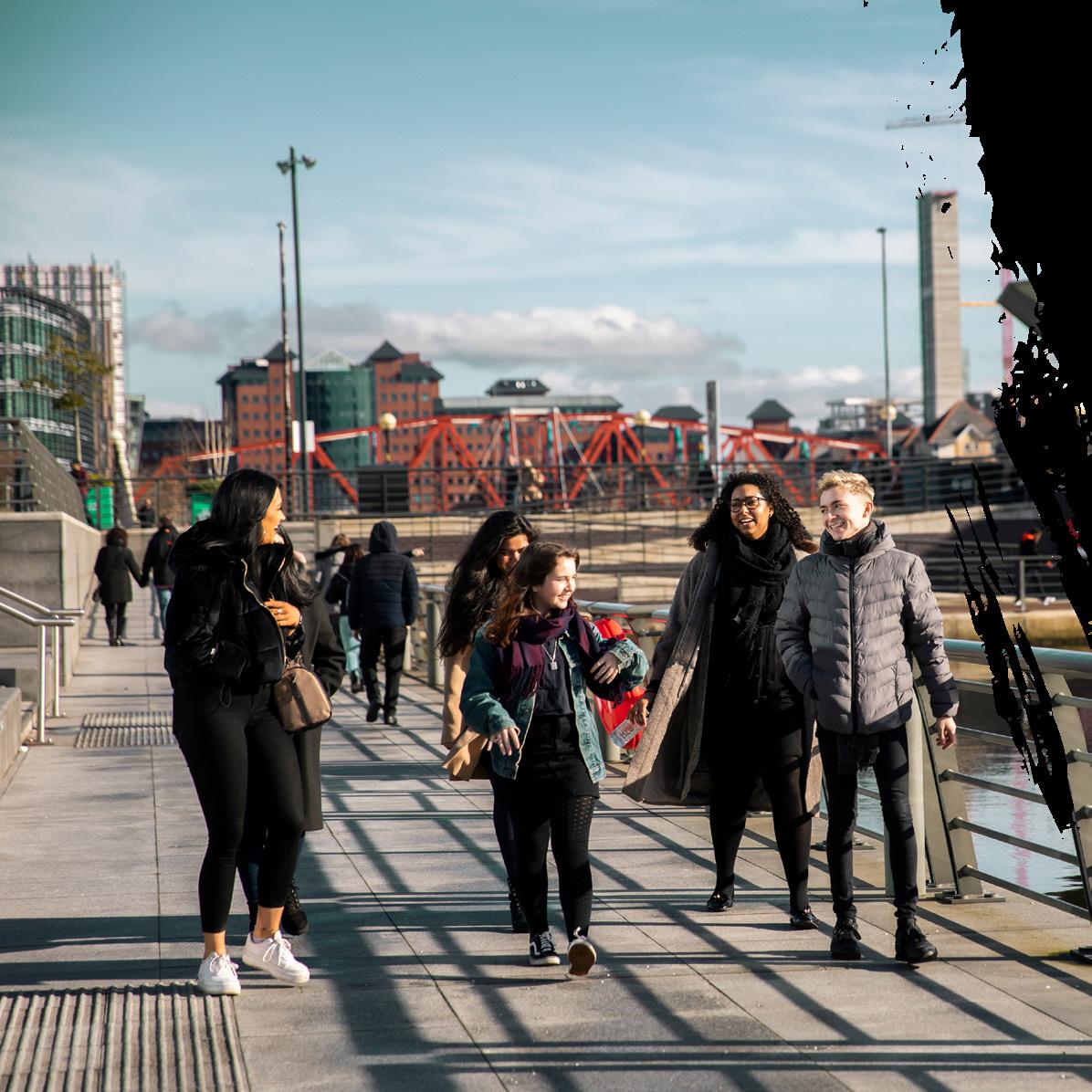
University of Salford is a unique place to study for many reasons, but especially for our location. Our Peel Park campus is set in 46 square kilometres of lush green space – one of the UK’s first public parks. We’re also the only university with a campus in the creative hub at MediaCity, home to BBC, ITV, and the UK’s largest media facilities outside of London. Whichever campus you’re based on, you’ll have the buzzing city of Manchester on your doorstep.
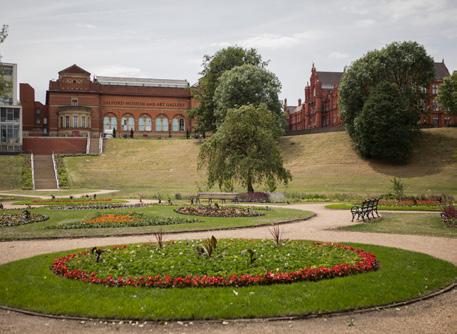
University is a time to make new friends, discover new passions and find your voice. Our Student Union runs a range of student-led societies which cover all aspects of student life – from gaming to sports, politics to the environment, performance to faith. You’ll be sure to find your place here.

There’s more to our campus than places to study. Fitness fanatics can take advantage of our large sports centre, 3G sports pitches and swimming pool, while culture vultures can revel in Atmosphere Café, the Art Gallery and our New Adelphi Theatre. There’s lots of options to keep you busy!

If you’re travelling from further afield, you can make your first year an even more memorable one by living in our stylish student accommodation right at the heart of campus.
If you’re here for the day, our specialist facilities, onsite parking and handy train and tram station access make commuting a breeze. Our new commuter lounges feature comfy seating, cooking facilities and extra study space – your home from home when you’re studying on campus.
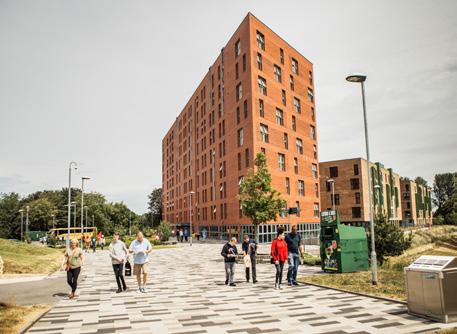
If you want to discuss any course or the application process, our dedicated course enquiries team is on hand to answer your queries:
+44 (0)161 295 4545 enquiries@salford.ac.uk salford.ac.uk/enquiries
If you are applying directly from school or college, you’ll make your application through UCAS – the organisation which processes applications for UK higher education.
If you’re not applying directly from school or college, you can complete our online application form. Find out more at: salford.ac.uk/how-to-apply
Places on some of our courses can be highly competitive and may also require you to attend an interview.
Interviews are nothing to be nervous about, they just allow us to talk to you about your chosen subject area in more detail and learn more about your ideas and current skills.
For detailed course information and entry requirements, use our handy Course Finder on our website: salford.ac.uk
We believe in creating opportunities for anyone who has the passion to learn. If you’d like to join us from the world of work, or balance the two, you’re very welcome at Salford.
The Accreditation of Prior Learning (APL) process could help you to make your work and life experience count. The APL process can be used for course entry, or to give you exemptions from some parts of your course. Find out more at:
salford.ac.uk/how-to-apply
As an international applicant, you are able to apply through UCAS, the organisation which processes applications for UK higher education, or you can apply directly through our regional offices or approved education consultant in your country.
To find out more and for help you with your application, you can visit our website where you will find advice on how to apply, entry and English language requirements, documents required, help and advice with visa requirements, and much more.
salford.ac.uk/international
